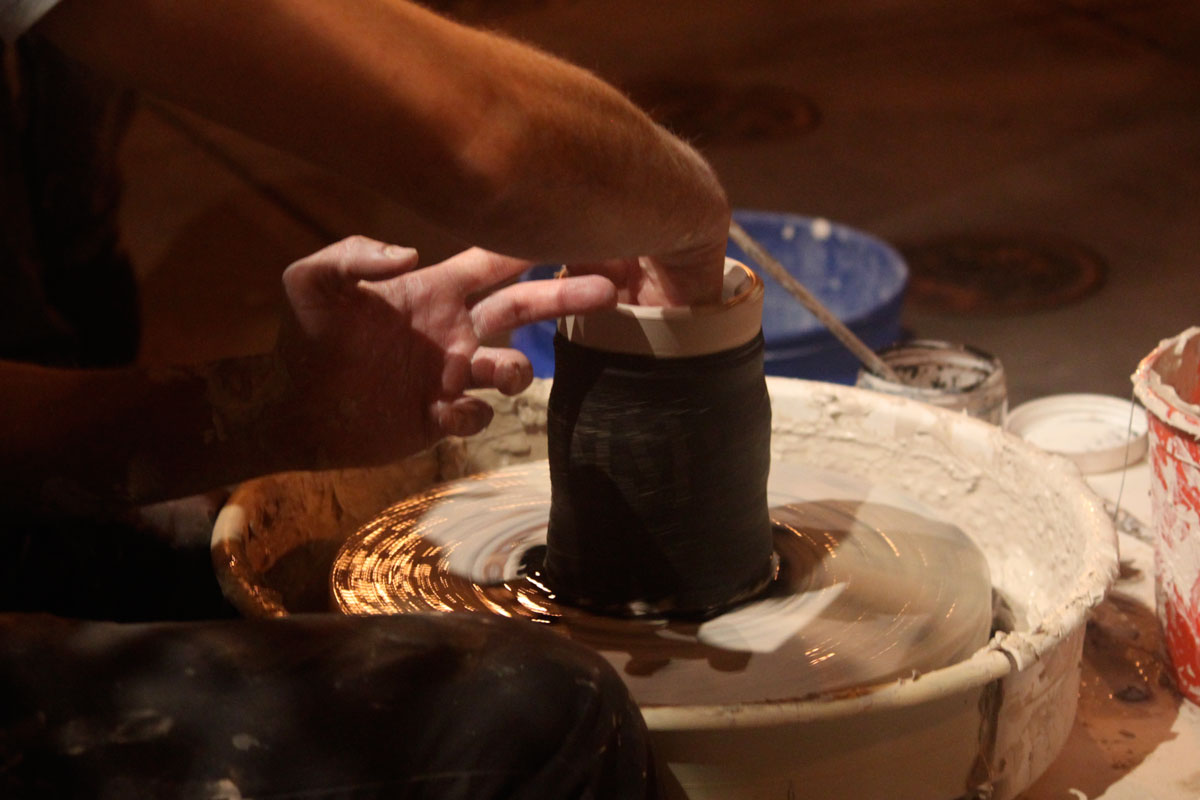From the Pastor: Don’t Waste Your Time
This is the word that came to Jeremiah from the Lord: “Go down to the potter’s house, and there I will give you my message.” So I went down to the potter’s house, and I saw him working at the wheel. But the pot he was shaping from the clay was marred in his hands; so the potter formed it into another pot, shaping it as seemed best to him. Then the word of the Lord came to me. He said, “Can I not do with you, Israel, as this potter does?” declares the Lord. “Like clay in the hand of the potter, so are you in my hand, Israel.
-Jeremiah 18:1-6
When God chose to speak to his people Israel, he would often lead his prophet to some mundane scene from daily life, then give him a message using the details as a metaphor to make it as clear and simple as possible. God didn’t want the meaning to get lost in abstractions and complicated theology.
In Jeremiah 18:1-6, God allows the prophet to observe the potter as he fashions the vessel to be used eventually for some practical purpose. Here’s the basic message that Jeremiah passes on to the people:
1) Just as the clay is totally dependent upon the potter, so are we absolutely dependent upon God. Since the potter knows what he’s doing, the clay being shaped has no grounds for complaining or protesting about what the potter is doing.
2) In the same way that the potter has a design in mind for the clay, so God works according to plan and purpose for his people. There’s no randomness in the shaping of the clay.
3) There is good reason for the tools’ carving, scraping, cutting, and pressure put upon the clay. So there is intelligence and reason behind the hardship, grief, and difficulties (the discipline) God allows in our lives.
4) Just as the clay sometimes seems to resist the shape it’s taking, so we try to resist God’s shaping of us. Israel consistently rebelled and did the exact opposite of what God designed and willed for them.
5) But the potter is persistent and often has to take the whole clay, pick up the bits and pieces around the wheel, press it back into one lump, and start over again. He doesn’t throw out the whole thing and look for some new clay. His patience in fashioning and refashioning eventually brings the vessel to its original design. Even Israel’s (and our) mistakes are eventually used to bring to pass his good and perfect will. God never gets so exasperated or loses focus that he turns away and abandons his work.
“The God who made the world and everything in it is the Lord of heaven and earth and does not live in temples built by human hands. And he is not served by human hands, as if he needed anything. Rather, he himself gives everyone life and breath and everything else. From one man he made all the nations, that they should inhabit the whole earth; and he marked out their appointed times in history and the boundaries of their lands. God did this so that they would seek him and perhaps reach out for him and find him, though he is not far from any one of us. ‘For in him we live and move and have our being.’ As some of your own poets have said, ‘We are his offspring.’
-Acts 17:24-28
What Jeremiah’s message in the Old Testament and Paul’s message in the New have in common is simply this: In the good times and the bad, we’re always and totally in God’s hands and in his providence. This means that how and where we are born, the place we live, how many years we exist on the earth, the trials we go through, and all the boundaries of our lives are within the mind of God. He’s in charge of all the gradual (even painful) shaping of our lives as well as the end product, intended for a practical and good purpose. When the job is done, the beauty and form of the once formless clay brings pleasure, honor, and praise to the Potter.







